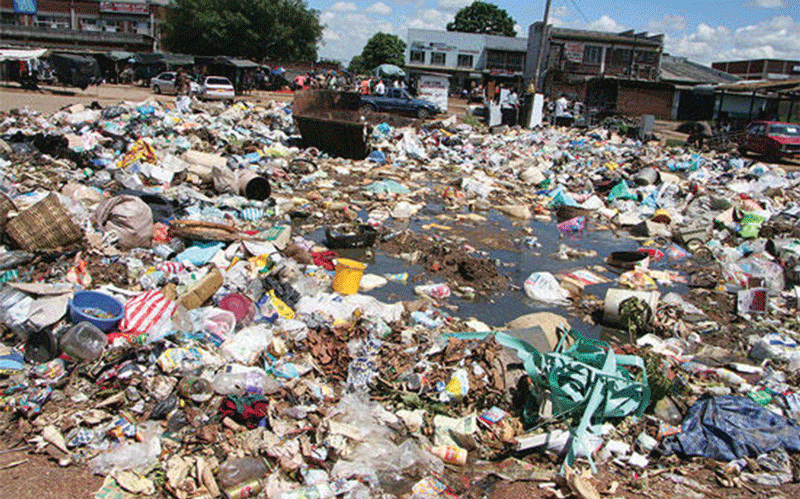
WHILE commemorating World Environment Day in Harare on Monday, Environment, Climate, Tourism and Hospitality Industry secretary Raphael Faranisi bemoaned the massive pollution across the country which is contributing to the global waste management conundrum.
“In Zimbabwe, only 10% of the waste generated is being recycled and this calls for more to be done to change the narrative,” Faranisi told environmental stakeholders. “Moreover, of the total waste generated in Zimbabwe, 18% is plastic waste, hence the call to act to reduce plastic pollution.”
This means that 90% of all the waste the country is producing is literally going to waste, and we believe Zimbabwe is missing a great opportunity in the waste management sector which has become a major global business expected to top US$530 billion in two years’ time having developed from US$331 billion in 2017, according to Statista, a German online platform specialising in data gathering and visualisation.
Research indicates that global waste is increasing at a phenomenal rate since almost everything is now being recycled one way or another as nations scramble to reduce the environmental impacts of waste.
Zimbabwe should quickly ride on this wave and start doing something about the 90% of the waste which is not being exploited to improve livelihoods and the southern African nation’s economy.
The recycling industry now offers opportunities for recyclers of paper, plastic, glass, metal, e-waste (televisions, computers, mobile phones and any type of home appliance, from air conditioners to children's toys), clothing, medical waste, construction waste, cooking oil filtration, furniture, food waste, mattresses, kitchen utensils, the list goes on and on.
Given the inherent potential in the waste management business, it is incumbent upon the Environment ministry to go on an all-out blitz educating communities on the opportunities that beckon in recycling.
This is an opportunity that Zimbabwe should grab with both hands because it will reduce its dependence on imports of products such as fertiliser. If communities are incapacitated they can enter into partnerships with those with the financial wherewithal.
- 90% of waste not being recycled: Govt
- Great opportunities beckon in waste recycling
- ‘Govt must tighten plastic legislation’
- Gweru under fire over poor waste management
Keep Reading
The awareness blitz should also be extended to schools, colleges and universities where the young generation can start thinking about waste recycling innovations.
Meanwhile, local authorities need to do more in educating communities in their localities about the importance of separating waste which is one of the major challenges that the country needs to work on if it hopes to effectively tap into the waste management business.
The country’s dumpsites are currently rising as they fill up with valuable waste that is difficult to separate because it is being mixed from homes, offices and factories. Separating waste makes it easier for communities to sell their waste to collectors who will only be glad to buy it because of less work involved in processing it when it is not mixed.
It is a pity that an initiative that was introduced some time back to separate paper, glass, plastics and metals had very few takers. This is why local authorities should drive this initiative since they are largely in charge of waste collection in their areas.






